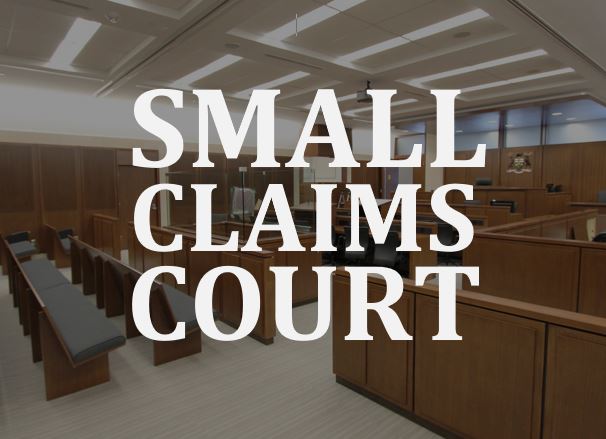
It tends to be used in situations where one or more parties is angry over a transaction that has gone poorly: “I’ll take you to small claims court!” one or more parties announces, usually as a threat.
But is Ontario Small Claims Court a good option in specific situations? What is Small Claims Court used for?
For civil cases that aren’t required to be in another court.
The Small Claims Court jurisdiction permits cases of a total amount value of $25,000 plus interest, plus costs. (This value was raised from $10,000 in 2010 in an effort to move more cases to what is often referred to as “the people’s court”.)
Almost every kind of civil case can go to the Small Claims Court unless some specific rule or statute requires the case to go to the Superior Court.
Any contract dispute or negligence claim, trespass and most other civil matters can be brought in Small Claims.
Cases that cannot be brought in Small Claims are construction lien actions; cases involving custody of and access to children; most Family Law matters as between married spouses; and cases that require one or both parties produce an accounting. These are reserved for other courts.
If you have a civil case that does not have to be in another court, it is usually preferable to proceed through Small Claims, where lawyers are not required and the rules are written for non-lawyers. Â The process is streamlined by requiring upfront disclosure of all important documents and a court appearance where further documents may be ordered. Examinations for discovery are not permitted – but neither is a motion for summary judgment.
A key advantage is that the cost of filing in Small Claims is lower than in the Superior Court of Justice for civil matters.
In Small Claims Court, if a party is unrepresented but successful in the action, the rules permit about 15% of the amount of the claim (not the amount of the award), to be ordered in costs even if the winning party did not incur legal expenses. (There are ways to increase the costs above 15%.) However, this rule can also be a negative if you use a lawyer, as legal fees in that case will typically be higher than what can be recovered in costs in Small Claims.
Paralegals are permitted.
If you are uncomfortable acting on your own, paralegals who are regulated by the Law Society of Upper Canada are permitted to appear in Small Claims. Under special circumstances a party may have someone assist in the case if they are not actually acting for that person. This means only a lawyer or a paralegal regulated by the Law Society may provide legal advice and represent a party in the Small Claims Court.
One advantage of proceeding in the Small Claims Court is a provision about its authority in the Courts of Justice Act. Section 25 provides that the Small Claims Court shall hear, in a summary way, the questions of law and fact before it, and are to make orders “as is considered just and agreeable to good conscience”. While the Superior Court has a similar jurisdiction called ‘equitable’ jurisdiction, Section 25 may be considered to provide some flexibility to the judge in Small Claims Court to apply some ‘common sense’ that a strict reading of the common law may not strictly authorize.
More questions? Don’t hesitate to contact us.
This blog is provided for educational purposes only and should not be construed as specific legal advice. This blog should not be used as a substitute for competent legal advice from a licensed professional lawyer in your province.
